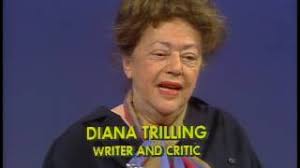27. Halle Butler
“Behavior is changeable. I might not be able to change my
thoughts and opinions, not at first anyway, but my behavior, that I can do.”
-Halle Butler
In 2010,
I found myself in a state that could only be described as out of control: My
actions were uncontainable and my thoughts were uncontainable and I didn’t try
to contain either of them. Not that I did anything to harm anyone—at least
anyone other than myself—but the level of sheer perversity of my behavior was
striking. Chief among the expressions of this behavior: the political harangue.
Whenever I’d talk to anyone I knew, or sometimes to people I didn’t, all
rational speech would soon give way to a full-on rant, part-impassioned plea,
part unjustified accusation. I especially enjoyed (if that’s the word) chiding
liberals who I deemed insufficiently left-leaning about their lack of radical
commitment. Fresh off a reading of Naomi Klein’s The Shock Doctrine, my
speech was filled with talk of “disaster capitalism” and “multinational
corporations.” While I knew that I was alienating friends, family, and
girlfriend alike, I didn’t seem able to shut it off; once I started my rant, I
felt compelled, against any kind of self-preserving judgment, to simply
continue.
Here’s
the thing, though: I was right. Not right in my behavior, not right in my means
of expression, but certainly correct in my conclusions. I mean, it’s clear! The
absolute fecklessness of the Democratic Party over the past several decades has
ensured that it has done nothing to combat widening inequality, climate change,
or really much of anything, even when it hasn’t been fettered by Republican
obstruction. And yet, a not negligible cohort of liberals still seems to think
everything would be fine if only Hillary Clinton had been elected! But lest
this sound like the beginning of a rant, let me rush to assure you that I don’t
do that anymore. I am cured. Half a dozen years of therapy have taught me to
control this behavior, to recognize harmful patterns when they emerge, and to
alter my actions accordingly. Behavior really is changeable and for this, all
flippancy aside, I am thankful.
Whether
or not Millie, the protagonist of Halle Butler’s 2019 novel The New Me,
is capable of altering her behavioral patterns, though, is another matter. A
thirty-year old temp worker in Chicago, Butler’s character is a sour,
depressive individual with vague plans for self-improvement that seem unlikely
to be fulfilled. She is, like myself at the same age (I was thirty in 2010),
both an alienating presence and a person given to intensely negative
expression. In her case, though that expression is confined mostly to her
thoughts, which is to say to Butler’s prose which unfolds almost entirely
through Millie’s first-person narration. Millie’s acid observations seem
equally the product of her semi-precarious position in the world (she suffers
from the same diminishing prospects as many other millennials, although her upper-middle-class
parents keep her floated) and a genuinely antisocial personality. Her rancid
thoughts may be confined to her head, but something of their grim disdain seems
to leak out into her everyday manner. It turns out that she’s right to worry
that her co-workers don’t like her and that her supervisor has it out for her:
Butler makes it clear that they really don’t and she really does.
There’s
something extremely attractive about a character that brings a genuinely rotten
attitude to a world that deserves that disdain. Even though Millie, as a
character, is deliberately made repulsive (we’re constantly reminded, for
example, of how bad she smells), there’s a charge in hearing her say things
that make so much sense but that most people would feel restrained from expressing.
But to actually know someone like Millie would be as unpleasant as getting
cornered by me in a bar in 2010, which is where the advantages of fiction come
in. My own ranting was unlikely to have any effect but to drive people away;
similarly, Millie is completely ineffectual in her alienated thinking, and is
anyway, not particularly politically minded. Butler, though, is able to channel
the unhinged voice in more productive ways than either Millie or I would be
capable of, seizing on her protagonist’s words and situation to impart a measure
of capitalistic critique to the narrative (in addition to the book’s more obvious
literary merits). Butler may have plenty in common with Millie (we know, for
example, that she shares a temping background), but here fiction allows her to
have it both ways. She can make her heroine as off-putting as she likes, using
that characterization to draw in the fascinated/repulsed reader. She can then turn
the character’s hatred—much of which she surely feels herself—into a more refined
form of expression, ultimately transcending the mere ranting of a perversely
antisocial young woman from the suburbs of Chicago.



Comments
Post a Comment